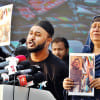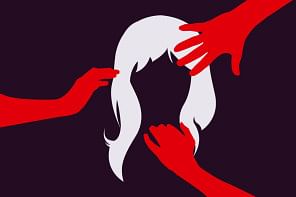Hasina, clan to be tried in person or in absentia
Chief Adviser Prof Muhammad Yunus has said ousted prime minister Sheikh Hasina will stand trial for crimes against humanity.
"A trial will be taking place. Not only her, but also all the people who are associated with her -- her family members, her clans or associates," Prof Yunus said in an interview with Sky News published yesterday.
Hasina is accused of overseeing a system of enforced disappearances during her time in office, as well as for the mass killing of protesters in July and August last year, the Sky News mentioned.
She is accused of overseeing a network of secret detention centres where it's alleged her political opponents were interrogated, tortured, and some killed -- all under the banner of a "war on terror".After she was toppled by the protests fled to India on August 5, Bangladesh's International Crimes Tribunal issued two arrest warrants for her.
Bangladesh had sent formal letters for her extradition but received no official response from New Delhi, Prof Yunus said.
However, he insisted that Hasina would face the court, whether physically present in Bangladesh or in absentia, in India.
Prof Yunus recently visited one of the now "infamous secret jails", code-named the "House of Mirrors".
"This is just the ugliest thing that you can see, you can feel, or you can observe."
Prof Yunus said the number and range of people involved in the alleged crimes was "taking time" to work through. "Everybody was involved in it all."
"The whole government was involved in it. So, you cannot distinguish who was really and enthusiastically doing it, who was doing it under orders and who was not quite supportive but carrying out those kinds of things."
Hasina, the military and police are also accused of a violent crackdown on protesters in July and August which the UN estimates killed as many as 1,400 people in the days before the former prime minister fled.
Prof Yunus tried to manage expectations around how quickly the families of victims will see justice, and whether that will happen under his watch.
Elections for a new government in the country could happen as early as December.
"Some will get punished, some will still be under the process, some will still be untraceable," the chief adviser said.
ANTI-GRAFT PROBES
Prof Yunus has had a large in-tray to deal with since taking over a country in turmoil, including anti-corruption probes into those connected to Hasina.
British Labour MP Tulip Siddiq, who is Hasina's niece, is one of those being investigated by the country's Anti-Corruption Commission.
Prof Yunus said the case against her was "serious", that she had a large amount of "wealth left behind" in the country and "everything" would be looked at.
Tulip resigned as anti-corruption minister in January after being named in the investigation in Bangladesh.
A spokesperson for the London MP said she "totally denies the claims" and had "not been contacted on these matters".
REFUGEE CRISIS
The influx of Rohingya refugees into Bangladesh is another challenge for the Yunus-led interim government.
There's been a sharp rise in the number of the mainly Muslim minority fleeing Myanmar into Bangladesh amid violence escalating in the country's long-running civil war.
Prof Yunus said they were now in talks with "rebel groups" in Myanmar about the possibility of a "safe zone" to eventually help the Rohingya refugees to return to their homeland.
He also acknowledged big problems in Bangladesh's Cox's Bazar, home to the largest refugee camp in the world, where an estimated one million Rohingya refugees have fled to -- and where "violence, drugs and paramilitary activities" are rife.
The tension, Yunus said, "will not disappear".

 For all latest news, follow The Daily Star's Google News channel.
For all latest news, follow The Daily Star's Google News channel. 







Comments